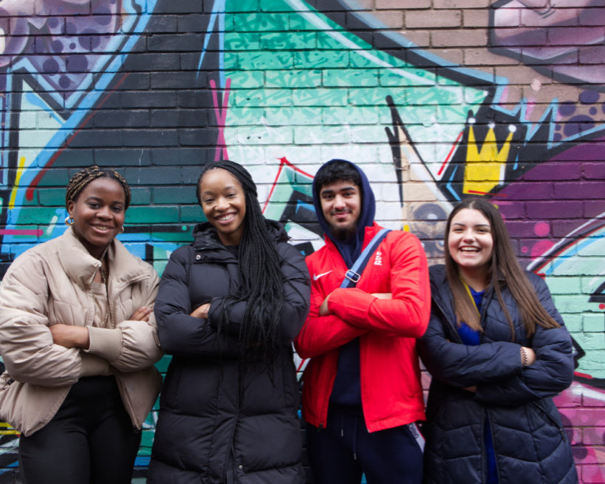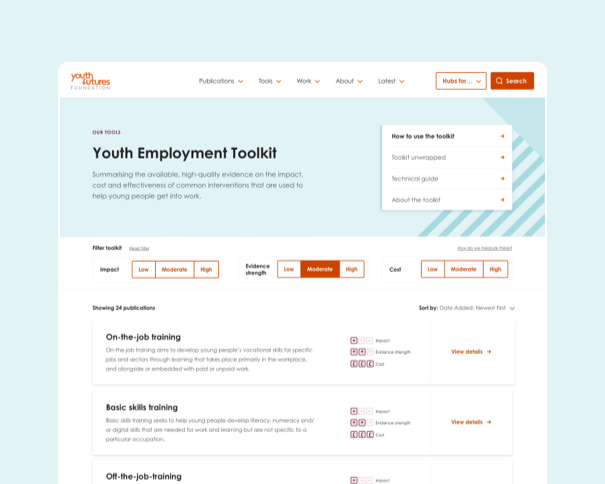Building Futures: testing mentoring support
Our early intervention programme delivering and evaluating mentoring support for secondary school students at risk of missing out on further education, training or future employment.
Building Futures explores and strengthens our understanding of the impact of early intervention on the youth employment landscape.
Building Futures draws upon the strongest international evidence to further expand and refine our understanding of different interventions and their effectiveness for youth employment in a variety of contexts.
When delivered in the right way, mentoring programmes can be a powerful tool for students who are struggling in school.
We want to build the evidence base on how mentoring can be used most effectively to reduce young people’s likelihood of being NEET at age 18 and increase their wellbeing.
Over multiple years we will develop, deliver and test a package of targeted support that places trusted adult relationships and the needs of young people at its heart.
Football Beyond Borders, selected as the first delivery partner for the programme because of its excellent record of developing trusted relationships, will engage 500 young people between 2024 and 2026.
Building Futures will reach at least 5000 secondary school students up to 2028 who are at risk of missing out on further learning or employment.
This phase will see 500 young people aged 12 to 15 receive personalised coaching, mentoring, and wellbeing support over a whole academic year.
They will be selected from schools in areas with high NEET rates across the West Midlands, North West and London, prioritising those with special educational needs, who may have challenging behaviour and are predicted to perform poorly in their exams.
The support programme will be delivered by paid staff from Football Beyond Borders who have at least two years of experience and qualifications, recruited to match the young person’s background and life experience.
This is based on evidence, which indicates that the quality of relationships between mentor and mentee is a key factor in achieving positive outcomes.
We will track the impact of the support on young people’s education and employment outcomes and share findings from the evaluation.
The demonstrator phase will consist of a test-and-learn approach with the selected partner schools to identify what works and which elements of the different iterations are most effective. Insights from this will be used to shape the strongest version of the programme, ready for wider delivery and testing.
We are working in partnership with the Behavioural Insights Team to conduct this stage of the evaluation.
Following the demonstrator phase, we will build to an impact evaluation which will test how mentoring influences employment outcomes later in life.
An impact evaluation assesses what changes in outcomes have occurred and the extent to which these can be attributed to a programme or intervention. An impact evaluation compares the outcomes of those who have received the intervention (known as the treatment group) with those who have not, but who are as similar as possible in all other respects (known as the comparison or control group)
“With NEET rates in the UK continuing to rise, it is essential we identify the best interventions to prevent young people from falling out of work in the first place.
"Understanding what solutions work to support secondary school students facing barriers and reduce their risk of becoming NEET is key to creating lasting change and ensuring all young people can achieve and thrive in good work.”
Charlotte Matless, Head of Programmes – Building Futures, Youth Futures Foundation

Young people were brought together for focus groups to help to shape Building Futures’ initial design.
A dedicated Youth Advisory Group has been established which will be engaged throughout the programme.

Building Futures draws upon our Youth Employment Toolkit, which summarises current global evidence on the impact, cost and effectiveness of common interventions that are used to help young people get into work.
Get in touch with our grants team